You feel like you have the flu
Summer isn’t exactly flu season, so if you feel achy or have other flu-like symptoms after a long day in the sun, they may actually be sun poisoning symptoms. “When the skin is damaged by UV rays, it releases chemicals that basically turn on the immune system and make you feel terrible like you’ve got the flu,” says John Anthony, MD, dermatologist at Cleveland Clinic in Cleveland, Ohio. Sun poisoning isn’t technically poisoning; it’s a layperson term for a super severe sunburn that has systemic effects. So, when you turn the corner from uncomfortable redness to a deep rouge so severe it triggers an immune response that makes you feel sick, that’s a sign you’ve had way too much. Here is the best sunscreen timeline to follow for sunburn prevention.
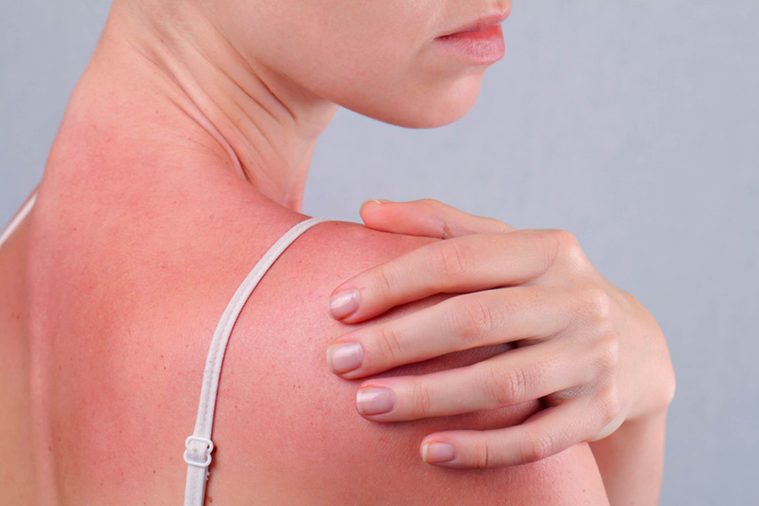
Your skin prickles
An ordinary sunburn is far from comfortable to touch, but sun poisoning even more so. Take note of these key sun poisoning symptoms: If your body is covered in a prickly sensation or you want to scream every time a hand or shirt brushes against your skin, it could be a sign your sunburn is on the very severe side. Apply soothing aloe, take a cool shower, apply cold compresses, or pop an ibuprofen to relieve the pain. And don’t forget to check out what dermatologists would do if they were sunburnt.
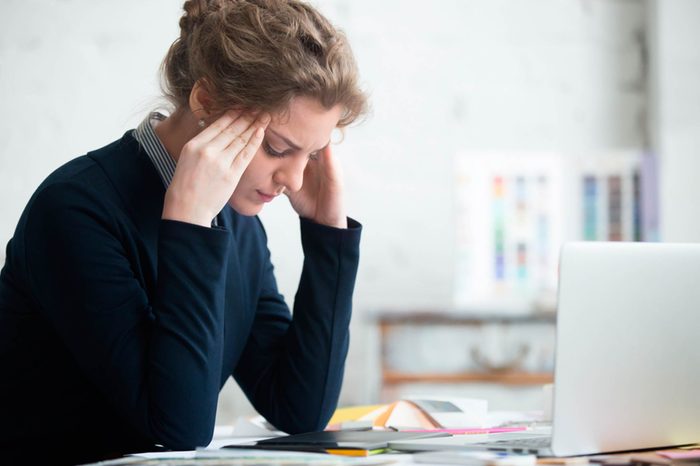
You feel dizzy or lightheaded
“A lot of these sun poisoning symptoms can be caused by a combination of too much sun and dehydration,” says Dr. Anthony. If your head feels off, you feel nauseous, or you have a headache, then you should drink plenty of fluids and lay down to rest. Also, make sure you’re avoiding these things you should never do after getting a sunburn.
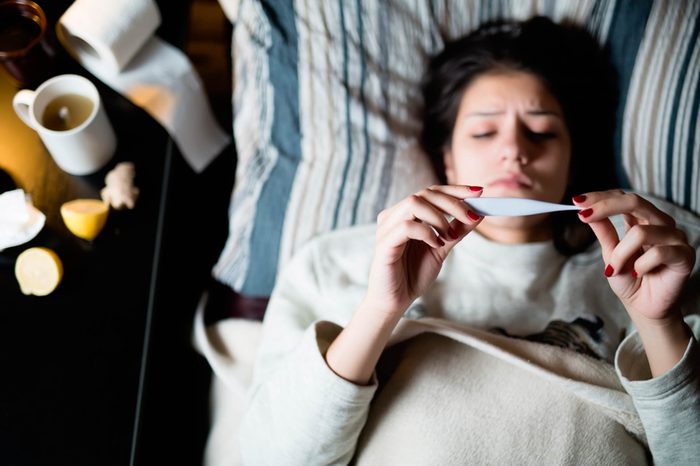
You have a fever
A fever is a sign something’s not right with your body. If your temperature spikes once you’re out of the sun and you feel generally unwell, play it safe and call your doctor or head to urgent care. “If you feel noticeably ill or have a fever and chills, it’s a good idea to see or call a doctor. Better safe than sorry,” says Dr. Anthony. The next time you spend time outside, be extra vigilant about applying a sunscreen of at least 30 SPF about 30 minutes before heading out and be sure to reapply at least every two hours, as well as every time you get out of the water. Also, be sure to avoid these sunscreen mistakes you may already be making.
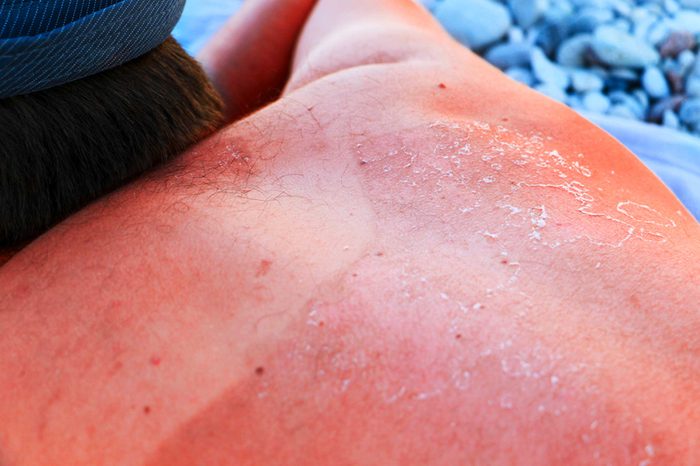
Your skin blisters
Blisters are also sun poisoning symptoms. Not only do they mean you’ll likely be in some serious pain until they heal, but you’re also at risk for infection if germs and bacteria get into open wounds. And don’t create open wounds by popping or scratching the blisters. Apply aloe, which Dr. Anthony says he uses to treat severe burns; take an anti-inflammatory to combat the physical pain; and stay out of the sun until they’ve fully healed. “If someone has severe blistering on the hands or face, you should get looked at by a doctor, just in case,” he says.
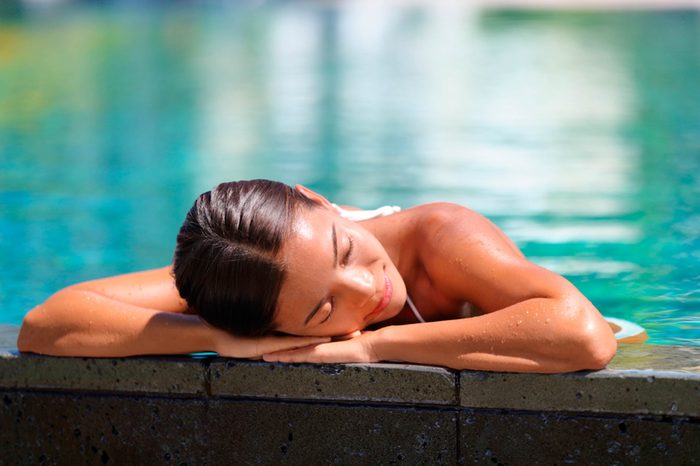
You fall asleep in the sun
“I usually see sun poisoning in people who fall asleep in the sun and then get burned terribly,” says Dr. Anthony. The amount of time it takes for a sunburn to reach its maximum burn or for you to feel whole-body effects varies—it could happen as soon as you get inside or take over while you’re sleeping that night—so if you’ve accidentally spent an entire afternoon catching rays on unprotected skin, take precautions like upping your fluid intake and applying aloe, even before you start experiencing any sun poisoning symptoms. Next, don’t miss these sunburn myths that could be damaging your skin.
